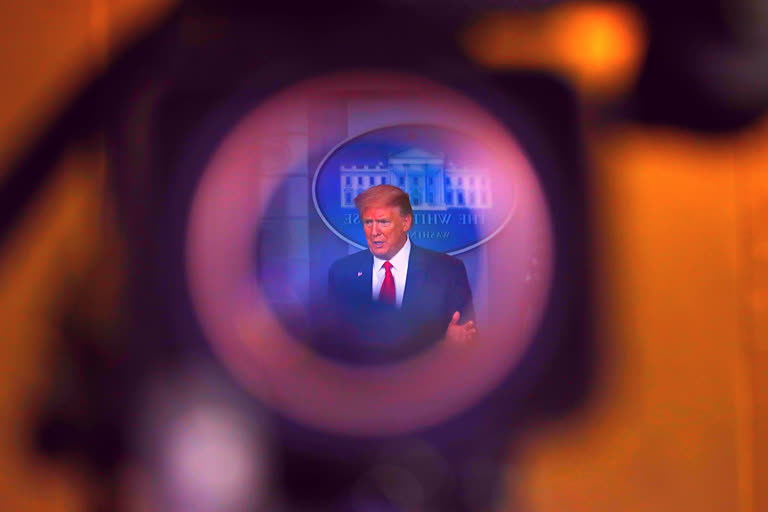Washington: As Americans try to stay safe from the coronavirus some families are arguing over which sources to trust and sometimes with each other.
Only a third of Americans see friends and family as a highly trusted source for coronavirus information according to a survey conducted by the Associate Press-NORC Center for Public Affairs Research in Mid-April 2020.
Read also: Remdesivir is by far the best drug to freeze corona spread: US
When John Manley -- a civilian US Army public affairs officer -- tested positive for COVID-19, his sister urged him to get on the malaria drug that she'd heard Fox News hosts plugging and that President Donald Trump was heralding as a potential "gamechanger" to fight the coronavirus.
But Manley, 58, was skeptical of using a drug not approved by the Food and Drug Administration for treating the virus and decided it was a gamble not worth taking.
"It caused a huge rift in the family because the science wasn't behind it," said Manley, who lives in the German city of Stuttgart. His wife Heidi Mathis had also tested positive for the virus after a visit to New York. Both have since recovered, and the FDA has advised people not to take the drug outside of a hospital or clinical trial.
Read also: Trump ignored 12 CIA warnings over pandemic
In the same poll, Americans are more skeptical about coronavirus information coming out of the White House with only 23% of citizens saying they trust the information President Donald Trump provides on the pandemic.
Debra Mize, a 61-year-old from Belleville, Illinois, has multiple sclerosis, an autoimmune disease that makes her more vulnerable if she catches the virus.
Her son Zach Stafford is helping take care of her physical and also helping Mize navigate the firehouse of information circulating about the public health crisis.
"After like the briefings and stuff, I used to be able to watch it from start to end. I'm not able to do that anymore. And that is my own prejudices and I understand that," Mize said.
"But I will come out and say, did you hear? And then he reminds me that not everything I hear... is accurate and I need to take some of it with a grain of salt and look at it a little bit more," he added.
The AP survey also found a majority of Americans seek out facts about the coronavirus from medical sources, including 66% trusting their doctor or health care provider and 68% relying on information from the Centres for Disease Control and Prevention.
"While we are social distancing at home and we've got a stay at home order, we take a look at what people say and take off the lens that has coloured the political divisiveness of our country and take a look at the science. And take a look at what the facts are. And you can get to that," Manley said.
For most people, the new coronavirus causes mild or moderate symptoms, such as fever and cough that clear up in two to three weeks. For some, especially older adults and people with existing health problems, it can cause more severe illness, including pneumonia and death.
AP



